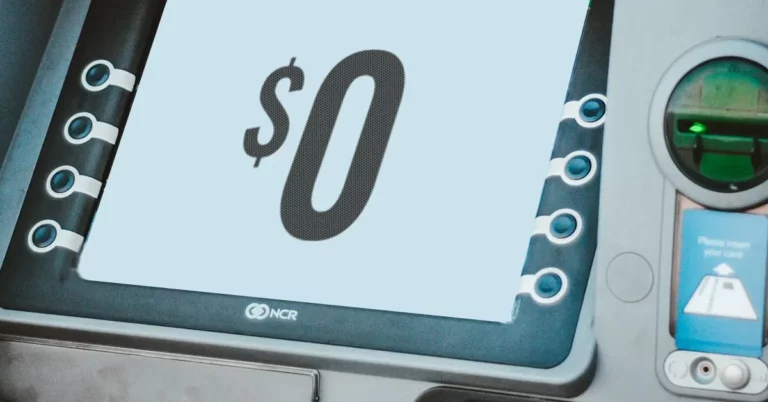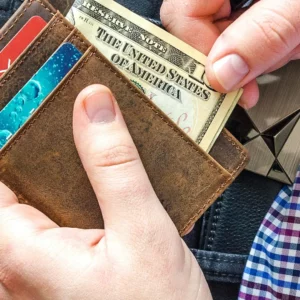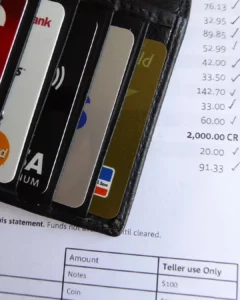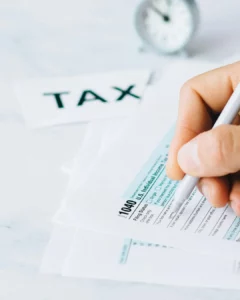There’s nothing quite like the sinking feeling of checking your bank account, only to find that thousands of dollars have vanished without a trace. No warning. No phone call. Just gone.
The first time it happened to me, I had no clue anything was wrong. One day, out of nowhere, the IRS sent a letter to my credit union, and without so much as a heads-up, they drained over $3,000 from my checking account. I only found out the hard way—when my rent check bounced, followed by a few others. This was back in the days when we still sent checks in the mail, and let’s just say it wasn’t a great way to find out I had been essentially robbed.
I didn’t even get a chance to fight it. The IRS doesn’t ask. They take.
Fast forward about a decade, and it happened again—but this time, it was worse. Due to some messy business dealings and mistakes with my tax filings, I found myself owing a large five-figure sum to the IRS. They weren’t exactly patient about it. I was completely broke, and with nowhere else to turn, I had to hire an attorney to file an Offer in Compromise—essentially a last-ditch effort to settle for less than I owed. After a long, grueling process, the IRS agreed to let me pay around $15,000 and forgave the rest. But getting to that point was brutal.
What I learned through all of this is that the tax system isn’t built to protect you—it’s built to extract from you. Even the people you hire to help, like accountants, don’t always have your best interests in mind. I remember one year, a friend mentioned a deduction I had never heard of. When I asked my accountant about it, he casually said, “Oh yeah, we’ll make sure to get that one for you next year.” Next year? That’s literally what I was paying him to do in the first place!
The IRS Can—and Will—Take Your Money Without Warning
Here’s what a lot of people don’t realize: The IRS has the power to seize money directly from your bank account without even taking you to court. Unlike most creditors, they don’t need permission from a judge. All they have to do is send a notice to your bank, and your money is gone.
And during tax season, many people don’t even know they’ve made a mistake until it’s too late. A miscalculation, a missed deduction, or even bad advice from an accountant can come back to haunt you years later—when the IRS decides it’s time to collect.
Protecting Your Wealth: Lessons Learned
After going through all of this, I started thinking differently about money. Here’s what I wish I had known back then:
- Never assume your accountant is catching every deduction. Double-check everything. Ask questions. Be proactive about your own taxes instead of blindly trusting the professionals.
- The banking system isn’t designed to protect you. If the IRS wants your money, your bank won’t stand up for you. Your assets are only as safe as the rules governing them.
- Consider holding money outside of the traditional system. If I had kept part of my savings out of the bank or in alternative assets, the IRS couldn’t have swiped them so easily as they can inside the traditional banking system, I would have had a financial cushion that couldn’t be instantly wiped out by the IRS.
It’s Tax Season—Are You Prepared?
Right now, millions of people are filing their taxes, hoping they did everything right. But the reality is, mistakes—whether they’re yours, your accountant’s, or even the IRS’s—can catch up to you when you least expect it. The best thing you can do is take control of your finances now, before you become another cautionary tale.
Stashing some emergency cash is a good idea. But it isn’t an investment. Stuffing cash under the mattress isn’t a great solution for the long term as it loses value over time and isn’t exactly secure.
The real lesson here is diversification. Relying entirely on a bank account means playing by someone else’s rules—rules that can change at any time, often without warning. Having a portion of your wealth in tangible assets like gold, silver, or other non-traditional stores of value provides a layer of protection. Even a separate account at a different institution could serve as a buffer. The key is to make sure you’re not leaving yourself completely exposed to the financial system’s vulnerabilities.
And more important is to prevent the problems in the first place. It’s crucial to stay on top of your taxes. Don’t assume your accountant is catching every deduction or that the IRS won’t come after you for an old mistake. Double-check your filings, ask questions, and if things ever start to look complicated, consider working with a tax professional who actually takes the time to strategize on your behalf. A little preparation now can save you from a major financial disaster later.
At the end of the day, financial security isn’t just about how much money you have—it’s about how much control you have over it. Make sure you’re not leaving everything in one place, at the mercy of a system that can change the rules whenever it sees fit.
I am not an accountant. If you are facing similar issues or are unsure, consult a competent professional sooner rather than later!




